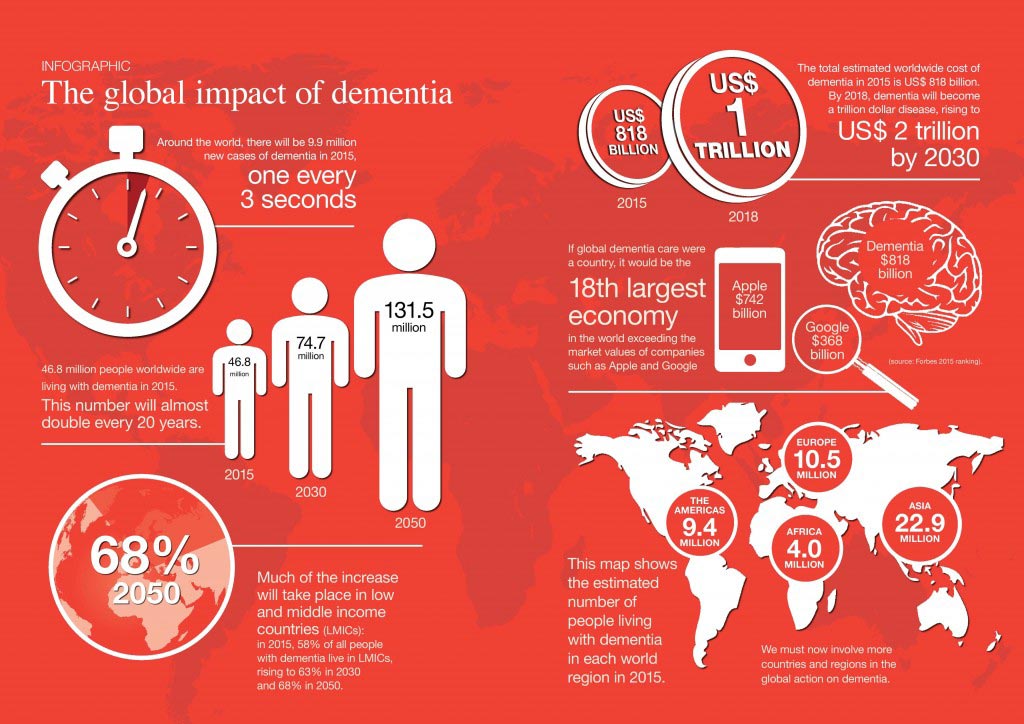
(Click on image to expand)
Exercise regularly? Sleep early? Play mahjong? You may have heard that these activities may help to prevent Alzheimer’s disease but do you know there is one more way?
And that is to maintain good oral hygiene!
As shared in one of the sessions at our recent nationwide public seminar, “Beyond Dentistry: More Than Teeth”, studies^ have found that people with poor oral hygiene or periodontal (gum) disease could have a higher chance of developing Alzheimer’s disease as compared to those with good oral health.
Good oral health in golden years
It is plaque, not aging, that causes tooth loss. Here are four tips to help you and your loved ones fight plaque:
1. Rule of 2-2-2
We can never emphasize enough on how important this rule is – brush your teeth at least 2 times a day, for at least 2 minutes each and visit a dentist 2 times a year.
Use a soft-bristled toothbrush, place it at a 45-degree angle and brush in a circular motion with fluoride toothpaste. This motion interrupts the growth of the plaque and prevents it from hardening into tartar.
Routine visits to the dentist ensures any signs of health issues like gum disease or oral cancer is detected early. The dentist would also help to remove any tartar (scaling) and extrinsic stains (polishing).
2. Floss at least once a day
Teeth brushing removes the plaque on the tooth surfaces but flossing is the only way to clean the gaps between the teeth. If you need a few more reasons to start flossing, find out more advantages of flossing in our previous blog post here.
3. Gurgle for at least 30 seconds
Therapeutic mouthwashes kill bacteria, reduce plaque, prevent or reduce gingivitis (early stage of gum disease) and prevent tooth decay. Interested to find out what is the best mouthwash? Keep a lookout for our next blog post.
4. Avoid sticky or sugary food
Food that are sticky (eg. dried raisins, energy bars, caramel) cling to the teeth and require more time for it to be washed away by one’s saliva, while prolonged exposure of teeth to sugar increases the risk of tooth decay.
Where possible, brush your teeth after consumption of these foods. An alternative is to rinse your mouth with water after consuming such foods to ensure that there are minimal remnants stuck on your teeth.
In addition to Alzheimer’s disease, many dental and other medical diseases are interrelated. Therefore, it is important to take these small but impactful steps to maintain good oral hygiene.
Today (21 September 2015) marks the fourth global World Alzheimer’s Day and Specialist Dental Group hopes to raise awareness about Alzheimer’s and dementia through this blogpost. Affecting more than 22.9 million people in Asia, Alzheimer’s disease is the most common form of dementia, a group of disorders that impairs mental functions.
Please subscribe to our blog for more interesting dental related topics or ‘Like’ our Facebook page for the latest updates on our team activities.
^ Studies: Determining the Presence of Periodontopathic Virulence Factors in Short-Term Postmortem Alzheimer’s Disease Brain Tissue (http://content.iospress.com/articles/journal-of-alzheimers-disease/jad121918)
^Inflammation and Alzheimer’s disease: Possible role of periodontal diseases (http://www.sciencedirect.com/science/article/pii/S1552526007006218)





